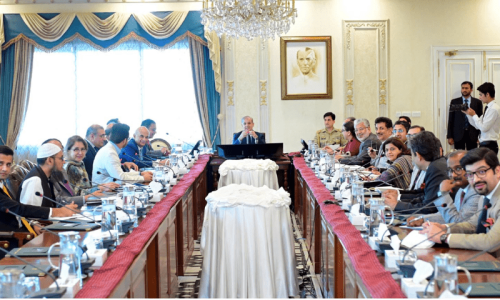NEW DELHI, Aug 29: India’s Supreme Court on Wednesday confirmed the death sentence handed down to Mohammed Ajmal Kasab, the lone surviving gunman from the 2008 Mumbai attacks in which 166 people were killed.
Pakistan-born Kasab, one of 10 gunmen who laid siege to India’s financial capital in attacks that lasted nearly three days, had appealed against the sentence claiming that he had not received a fair trial.
“We are left with no option but to award death penalty,” the two judges said in a court order. “The primary and foremost offence committed by Kasab is waging war against the government of India.”
Kasab, who is currently held in a maximum-security prison in Mumbai, was found guilty on charges, including waging war, murder and terrorist acts, and was sentenced to death in May 2010.
After losing his Supreme Court petition, Kasab is expected to lodge a final appeal for clemency with new President Pranab Mukherjee, who has another 11 cases to consider.
Only one execution has taken place in India in 15 years — that of a former security guard hanged in 2004 for the rape and murder of a 14-year-old girl.
“The best possible points were put forward dispassionately on behalf of the accused,” state prosecutor Gopal Subramanium told reporters.
“They have been considered and the court ultimately dismissed the appeal.” Ujjwal Nikam, who led the case against Kasab throughout the trial process, called on the death sentence to be carried out “as soon as possible so that it gives a strong signal to terrorists.”
During the November 2008 attacks, heavily armed gunmen stormed targets in Mumbai, including luxury hotels, a Jewish centre, a hospital and a bustling train station.
India blames the Pakistan-based Lashkar-e-Taiba (LeT) militant organisation for training, equipping and financing the gunmen with support from `elements’ in the Pakistan military. Kasab initially pleaded not guilty but later confessed, admitting he was one of the gunmen sent by LeT.
At his trial, the prosecution produced fingerprint, DNA, eyewitness and TV footage evidence showing him opening fire and throwing grenades at Mumbai’s main railway station in the bloodiest episode of the attacks.
“I was denied a fair trial,” Kasab said in a statement when his appeal hearing began in January.
“I may be guilty of killing people and carrying out a terrorist act but I am not guilty of waging war against the state.”
He said that he was denied proper legal representation and that some charges against him were not proved beyond a reasonable doubt.
Pakistan has admitted that the attacks were planned partly on its soil, but flatly denies any official involvement. It charged seven alleged plotters behind the attacks in 2009 but insists it needs more evidence to convict them.
Speaking at a conference in Tehran, Foreign Minister S.M. Krishna reacted to the court’s decision by saying that he was “sure Pakistan will not fail to take note of it”.—AFP













































Dear visitor, the comments section is undergoing an overhaul and will return soon.